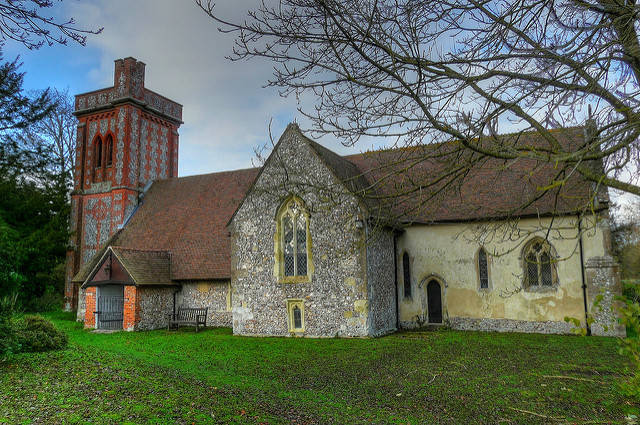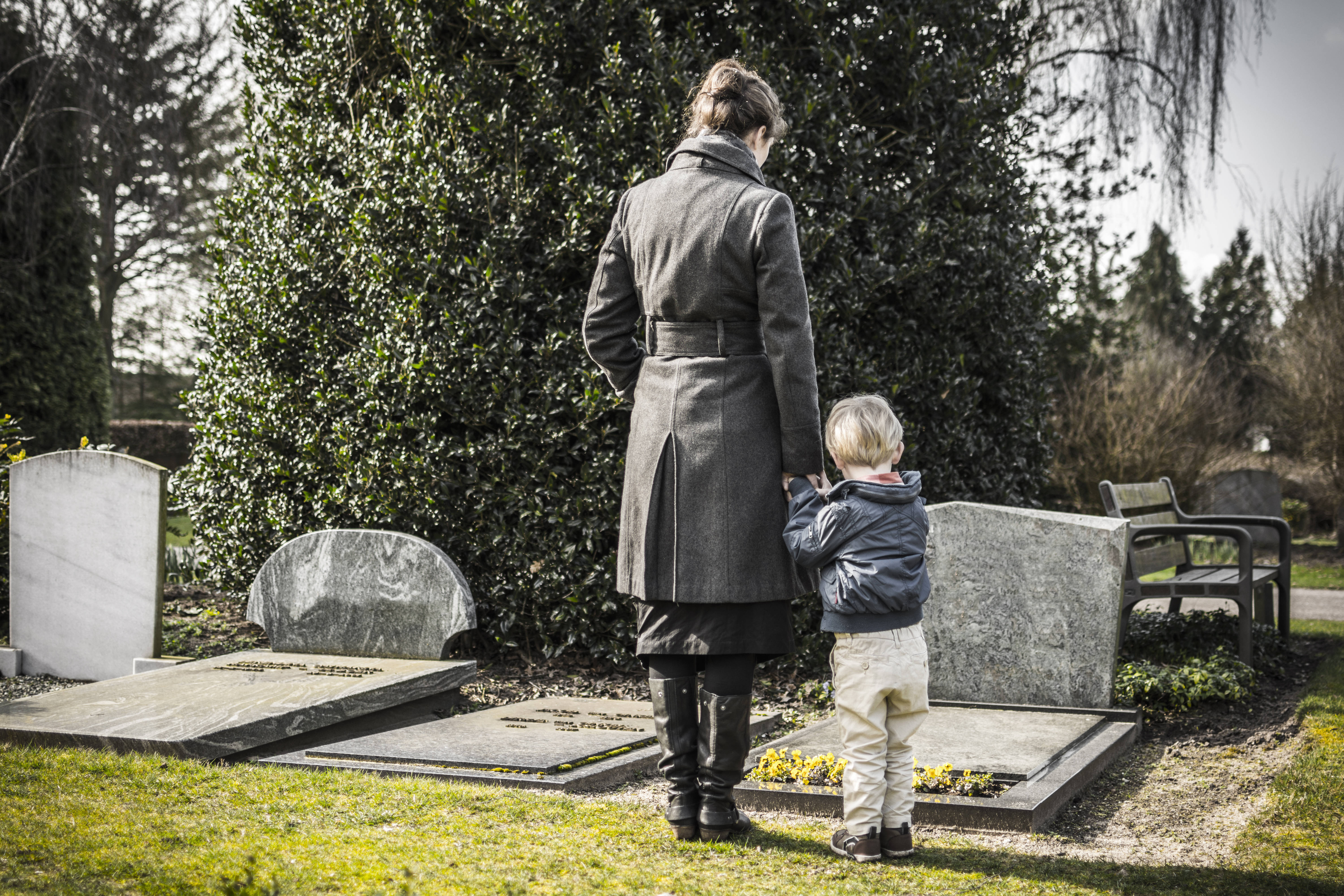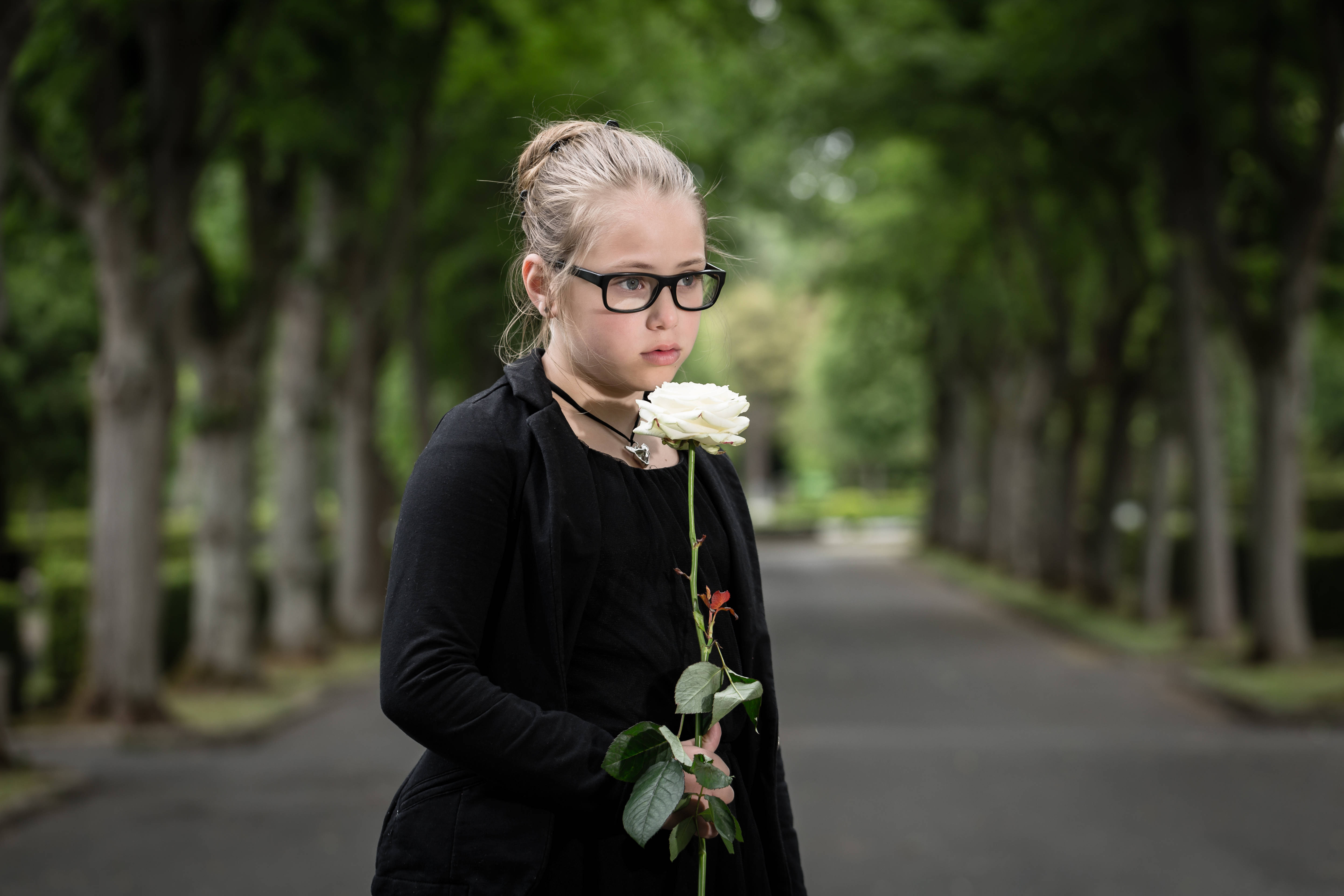
Should you take children to a funeral?
Posted by AK Lander | On July 31, 2020 11:14
Whilst this not a choice you will ever have wanted to make, we must face the fact that it cannot be avoided for those of us with families.
The chances are that at some point in your life you will need to make a difficult decision: should you, or should you not, take your children to an upcoming funeral?
Although it is not a choice you will ever have wanted to make, we must face the fact that it cannot be avoided for those of us with families who have recently lost someone we love.
It is only natural that you want to protect your children from being upset at all costs, but it is not necessarily a bad thing that they are introduced to the concept of loss at a relatively early age. After all, death is – sadly – the one inevitability of life, and we all have to come to terms with it at some point.
It’s all about choice

There is no definitive answer as to whether you should take your child to the next funeral you will be attending and it ultimately comes down to personal choice and is dependent on a whole range of factors.
Before you make a decision, take a few minutes to consider some of the following questions:
- How close was your child/children to the deceased?
- Are they old enough to understand what a funeral means?
- Can you be sure that they will be quiet and respectful if they attend?
- Are they particularly emotional and likely to become very upset?
- Have they explicitly expressed a wish either to go or not to go to the ceremony?
Children should never be forced to attend a funeral if they have said they do not want to, but nor should they be prohibited from going if they want to.
Laura Summer, who is behind the lifestyle and parenting blog Laura's Lovely Blog, says that it is very dependent on the child when it comes to deciding whether they should attend a funeral or not.
“There isn't any right or wrong answer to taking a child to a funeral. It entirely depends on the child and their relation to the person who has sadly passed. What does your child need as part of the grieving process? Will going help them or will it be too traumatic for them? The last funeral we went to my children were smaller. I decided to not take them to the funeral and take them to the wake instead. So many people took so much pleasure from seeing children playing at the wake that I knew it was the right thing to do, but as it was a close family member I knew this would be the case. It if was a more formal affair, I wouldn't have taken them, because small children don't understand the need for quiet and they need to play as part of their way of processing.”
The UK’s leading bereavement charity, Cruse Bereavement Care, also has some excellent advice on how you should deal with whatever your child decides, which we’ve laid out below.
If they want to go: “Explain to them that they can change their mind even at the last minute and can participate as little or as much as they feel comfortable. You may want to ask someone who you and your child or young person trusts to help take care of them during the ceremony, to explain to them what is going on and to go out with them at any point if they wish to do so.”
If they do not want to go: “Make it clear that this is OK. Try to find other ways to involve them – for example, by taking photographs and writing down and talking about what happened at the service. Try to work out with them other ways they can say goodbye.”
Tips for taking children to a funeral
Be honest

Before you take your children to a funeral you should look to be honest with them about the service and what is involved.
If, for example, a loved one is getting buried you can talk to them about this if they have any questions, you can also talk to them about how you have looked through different headstones and decided on one to commemorate your friend or family member.
Susan Mann runs her own parenting blog and she spoke about how she has recently gone through this with her children after their grandmother had only a few days to live following a long-term illness.
“I have been honest with the children, not too much detail, but answering any questions they have. We have discussed both burial and cremation, that it is a personal choice of the family and of the deceased who can hopefully, make that decision before needed. We spoke that their funeral is for the family and friends to say goodbye to their loved one through songs, prayer and reading. They are then lowered into the ground to rest or they go behind a curtain.
“I think, depending on the child, they may want to go to the funeral. We explained that they'd have to be quiet and respectful for the people there and people will be upset. It can be a little daunting, but a nice way to remember your loved one and say goodbye. Being honest, and trying to answer their questions is how I feel children can understand. We won't have all the answers and telling them we don't know, is what makes us human too. It's a difficult time for everyone.”
What should a child wear at a funeral?

This is a common question for parents that are taking their children to a funeral. Children should dress smart to a funeral and traditionally boys should wear a smart shirt and tie with trousers and shoes, whilst girls typically wear smart dresses.
This, however, has changed in recent years with some children being told to wear brighter and more cheerful clothing to funerals. If the deceased is a supporter of a team they may ask all attendees to wear sports clothing.
Laura Summer says: “I would also say don't worry about buying them funeral clothes, just put them in something smart. They grow too quick and children shouldn't be all in black anyway.”
Visit the venue with your child before the service
Something that many parents do is take their children to the church or the crematorium before the day of the burial or cremation. This can make the day less daunting, but it is something you should speak to your child about.
Marty Tousley, who is a grief counsellor and runs the site Grief Healing, said: “If possible, you can take your children to visit the mortuary, funeral home or house of worship ahead of time. Show them where to find the restroom, drinking fountain and play area, and remind them that they don’t have to stay there the whole time if they don’t want to. Explain that they can go outside with an adult to play or go for a walk.”
What should you do if your child's behaviour is disturbing others at a funeral?
A common concern for many parents is if a child starts misbehaving or they are disturbing fellow mourners during the service.
Marty Tousley spoke about what you should do if this happens to you: “Children experience grief in small doses, and moving in and out of grief is natural for them. Let your children know that crying, laughing and playing are okay and that you respect their need to be children at this sad and difficult time.
“Explain to the older children that there are acceptable ways to behave at funerals and that you expect them to be considerate of the feelings of other mourners. If your child is too young to understand that concept, activate the plan you’ve already put in place, and ask the person you’ve assigned to remove your child from the situation.”
Some helpful resources

Another useful thing to do ahead of the funeral or cremation of a loved one is to find out more information as there are lots of different resources that will be able to help you. Reading the following resources will not just help you, but they share extra information about other considerations such as buying memorial headstones. Here we’ve listed some useful resources you can read when deciding whether to take your child to a funeral.
- Emma and 3 – An emotional article in which blogger Emma Bradley discusses why she chose to take her daughter to the funeral of her great-grandfather.
- Debrett’s – Etiquette experts since 1769, Debrett’s is a great site to visit if you want to know all about more formal considerations, such as where your child should sit when attending a funeral.
- Child Bereavement UK – This PDF, entitled ‘Explaining Funerals, Burial and Cremation to children’, is an excellent resource, addressing in detail all of the issues we have discussed above.
- Bereavement Advice Center – The ‘Useful Contact’ section of the website has helplines and contact information for different charities that help give you advice about funerals and taking children to them.
